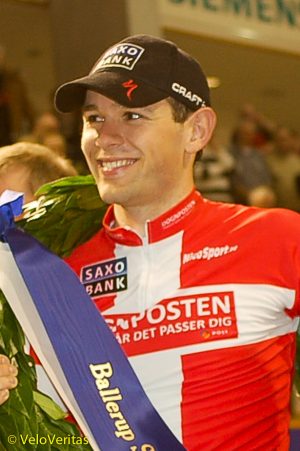
He’s been one of the outstanding track riders of the last decade, world champion four times across three disciplines – scratch (twice), madison with Michael Mørkøv and team pursuit.
There’s been a raft of national, European and World Cup titles and podiums not to mention an Olympic team pursuit silver.
On the Six Day scene he’s won in Berlin, Bremen, Copenhagen, Ghent and Grenoble.
And that’s before we mention his road palmarés – two stages in the Dunkirk Four Day, the GP Herning, Philadelphia…
But Alex Rasmussen has called ‘time’ on all of that and will race this season on a low key domestic programme.
We caught up with him the day before he rode his last ever Six Day chases in the Six Days of Copenhagen in Ballerup.
Your dad raced, is that how you started?
“I started very young at six years of age but then I got sick of it when I was maybe 12 years-old and played soccer and ice hockey – but I came back to it when I was 15.”
Who were your idols as a youngster?
“I didn’t have any but I remember watching the track Worlds and thinking the big American sprinter, Marty Nothstein was pretty cool.”
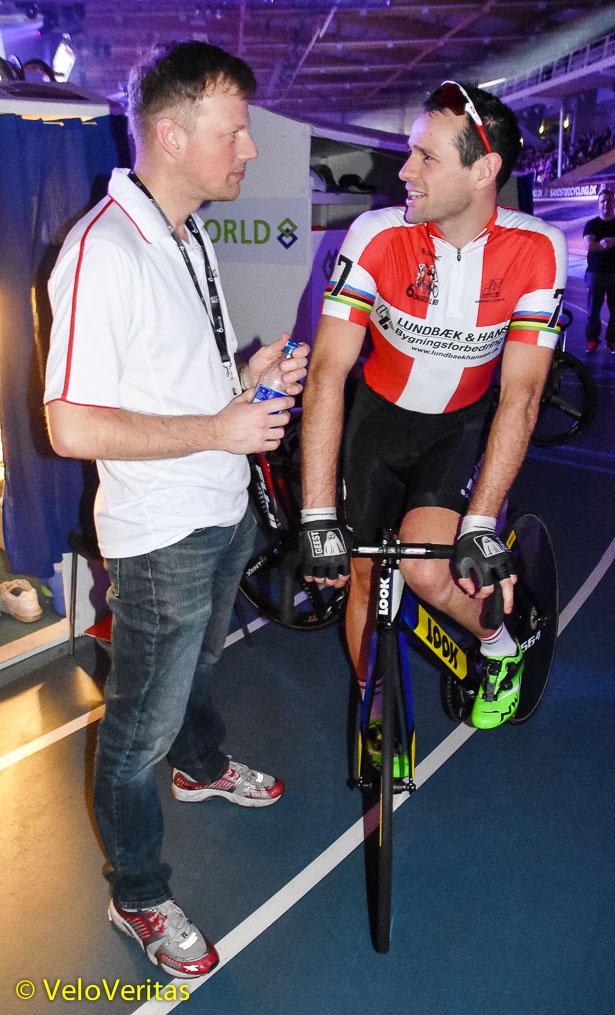
We chatted the other day about your Beijing Olympic training experience being hard work.
“Only the preparation we did to accustom us to the time difference, getting up at 04:00 am and going to bed at 7:00 pm – I would have acclimatised to the new time zone quickly without the need for that.
“The altitude training camps we had in Mexico and South Africa were good, I enjoyed those.
“The training was very short, sharp, intense – we trained twice each day.”
Going professional with Bjarne Riis at Saxo – what was that like?
“We didn’t see that much of Bjarne, our DS was Brad McGee. He was our contact and I was happy working with him.
“Saxo was the team to turn pro with if you were a Danish guy and I liked my time there but was disappointed not to get the opportunity to ride Paris-Roubaix.
“But of course the team for that was built around Fabian Cancellara.”
Phili was a big win for you – that’s a six hour race…
“I was surprised to win that one – I had just finished the Giro four or five days before and was tired.
“I’d gone home to Gerona then flew to the US, I hadn’t really done any training, just one hour rides.
“At the start of the race I wasn’t even thinking about finishing, we were there for Leigh Howard.
“But coming in to the finish he had problems with his electric gears so I thought I might as well give it a go!”
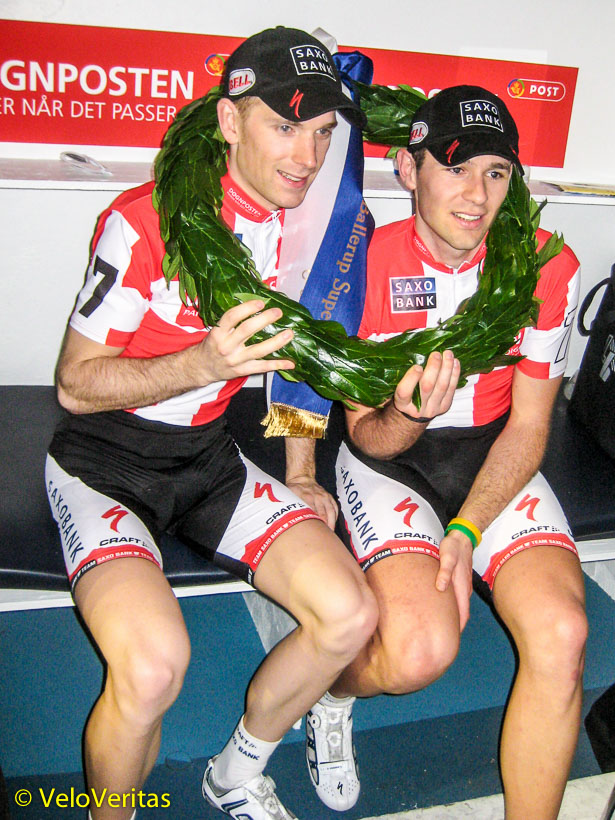
You were close to a Grand Tour stage win, weren’t you?
“Yeah, that same year, 2011 with HTC.
“I was at least 20 seconds up on David Millar, who won the stage, inside the last kilometre when I punctured.
“It was a really technical finish over big Italian stone slabs and you just couldn’t go fast – I lost the stage by seven seconds. [Alberto Contador was third on the stage, ed.]
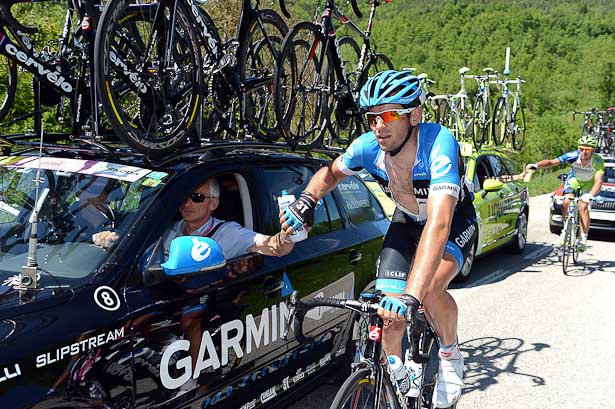
Your ‘whereabouts’ suspension; it seemed you were perhaps not the same rider after that.
“To tell the truth it was all so complicated that I don’t remember the exact details – but I do know that my legal guys narrowed it down to just one of the three ‘strikes’ being valid.
“The UCI made mistakes for sure but they wanted to make an example of me and make a statement about their ‘whereabouts’ system.
“I’ve no idea what would have happened if I’d managed to get the ban overturned but the suspension denied me a ride in my home city Worlds in Copenhagen and also meant I didn’t go to the London Olympics.
“As I say, I can’t say what would have happened but I do know that I was flying when the ban was imposed.
“The team (Garmin) was supportive, they waited for the UCI verdict but the bottom line is that I lost 18 months of my career.”
But you won your first race back?
“Yeah, a stage in the Bayern Rundfahrt, that was nice; to know that I still had that within me.”
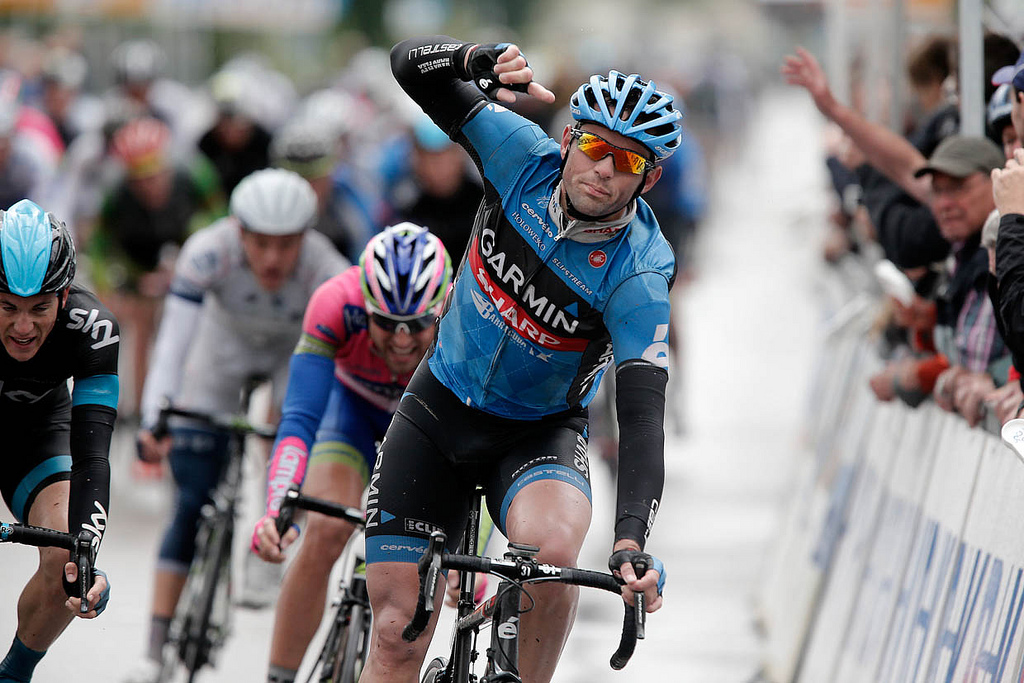
But Garmin didn’t retain you?
“After Bayern I think I rode pretty decently but then I went to the Vuelta where we were riding for Dan Martin – but he didn’t have a good race and I think that there was an element of punishment applying, not retaining guys who rode that Vuelta.”
Why the disillusionment with the Six Days?
“I’m just done with it – I don’t think I’ll ever come back to it.
“The contract fees are down and the prestige of the Sixes is no longer as it was.
“You remember what the Sixes were like, and how Michael and I approached them? I just don’t feel like that anymore.
“The road dominates now and the Six Day scene just isn’t the same. People say; ‘but you still get a contract for €X, even when you pay your staff you’re still doing OK? ‘ but you can’t look at it that way. You can’t just appear and ride, I mean, I had to do a training camp to prepare myself for the Six Days – then there’s two bikes, six pairs of wheels and the cost of tyres…”
When were you happiest on the bike?
“Being World Scratch Champion was cool, if you’re a fast guy then it’s your ‘thing’ and a nice race to win.
“I won in LA but then it was really special to win for the second time here at Ballerup.
“Winning the team pursuit was a great experience – the team was good but not as strong as they are now.
“And my time at Saxo was good.”
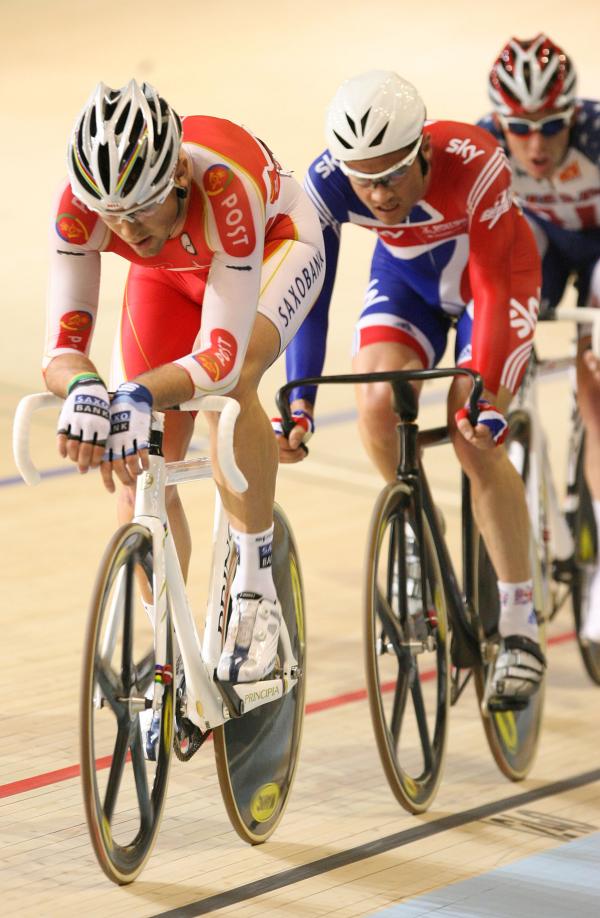
Has becoming a husband and father made a difference to your mentality?
“I’m in a different place mentally to where I was, yes – you know that many good athletes are a little crazy?
“You remember that I wasn’t that organised or responsible and didn’t give a rat’s behind about much – I just wanted to win!
“Even before I got married I was changing, rather than wanting to just win I became more conscious of a desire to help other riders, especially the young guys.
“I prefer now not to have the pressure and responsibility of being expected to win.”
You’re vegan now – do you feel that’s affected your performance?
“Not at all, it’s helped me stay lean even though I’ve not being training as much as I used to.”
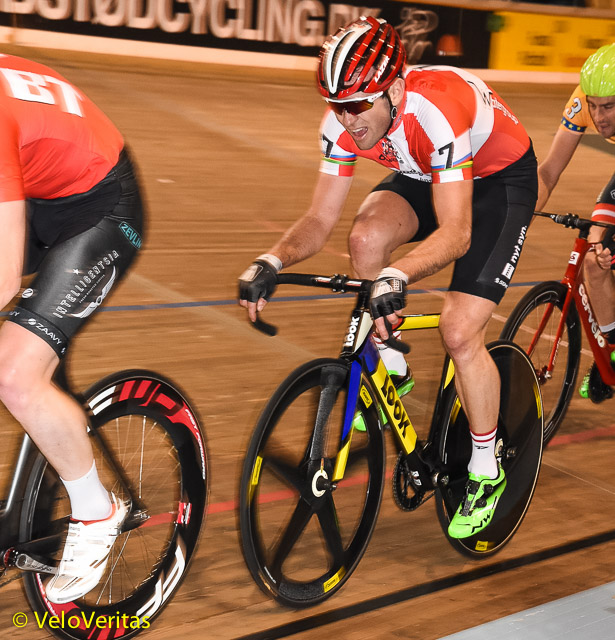
And it’s a lower key 2017 for you?
“Yes, amateur racing, taking it day by day – and I want to build up my company, focus on speaking at events, here at the Six for example, doing promotions for VIP’s and perhaps promoting sportives.
“I have a lot of contacts and experience and I intend to make the most of that.”
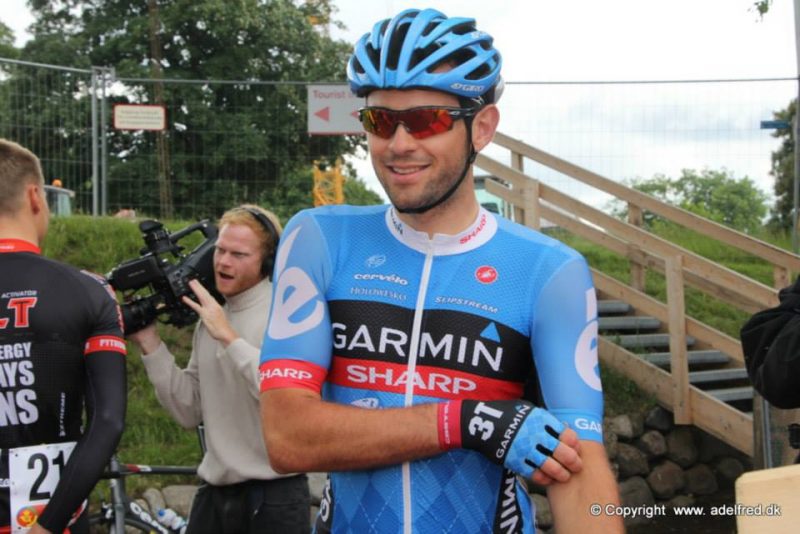
Regrets?
“I’m quite happy with how my career went – obviously I regret the situation with the whereabouts but even that I intend to speak about, us it.
“When I speak about my career it’s not just going to be about the successes.
“I do regret not wearing the maglia rosa in the Giro though; I was third in the prologue and if I’d stayed with the team in the TTT I’d have taken it. The course was pan flat but there was a hill – quite steep – at the end. I’d used myself up early in the stage and was dropped on the climb.
“Like I said, it would have been nice to have worn pink…”
We’ll miss the man and wish him ‘all the best’ with his new direction in life.



